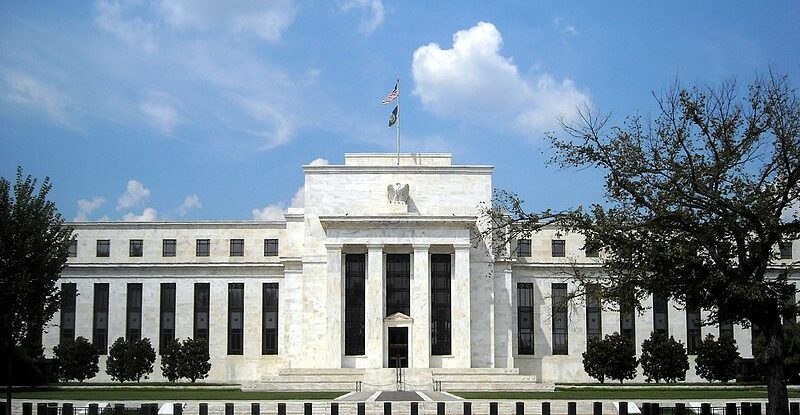
The political firepower generated by Sen. Rand Paul’s Audit the Fed bill is now giving new attention to an alternative or potentially complimentary political response: to shift power from the New York Federal Reserve Bank to other regional Federal Reserve Banks.
The Federal Reserve System’s most crucial policy body is the Federal Open Market Committee, made up of members of the Board of Governors and of district Federal Reserve Bank presidents. The FOMC is the body that decides whether to raise, lower, or hold steady the discount rate, widely considered the bellwether for establishing the other interest rates.
Does the current composition of the FOMC give too much power to Washington and Wall Street?
The Wall Street Journal’s Real Time Economics blog notes that a powerful political force—community banks—appears to be getting behind the proposal first championed by Dallas Federal Reserve Banks President Richard Fisher:
The Independent Community Bankers of America is calling on Congress to pass legislation that would implement several changes Mr. Fisher proposed earlier this month. The letter was first reported by Bloomberg News.
No lawmaker has introduced legislation to implement Mr. Fisher’s proposal, but a spokesman for Rep. Mac Thornberry (R., Texas) said the congressman is considering offering such a bill.
Mr. Fisher favors, among other things, ending the New York Fed president’s permanent role as vice chairman of the central bank’s policy-setting Federal Open Market Committee, and instead rotating the position among the 12 regional bank heads. He advocated changing the way the bank presidents rotate as voters on the committee and recommended the Fed chair hold press conferences after every policy meeting rather than quarterly.
Mr. Fisher promoted the proposal as an implicit alternative to Audit the Fed in a Feb. 11 speech in New York. “We at the Fed must fully and frontally address the concern of many who feel that too much power is concentrated in the New York Fed,” Mr. Fisher said.
This is not exclusively, or even primarily, a Democratic issue. Fifty-two Republicans have already endorsed a past measure acknowledging the importance of stripping New York of disproportionate power in the Fed Reserve system.
As it happens, monetary thought leader (now Vice Chairman of the Congressional Joint Economic Committee) Rep. Kevin Brady’s Sound Dollar Act—sponsored by 52 Republicans in the 113th Congress—also called for a greater voice for greater power for regional Federal Reserve Banks. The 2013 Sound Dollar Act focused on the FOMC and held (in part), “The existing structure of the Federal Open Market Committee places too much authority in the hands of Washington and New York at the expense of the remainder of the United States.”
The addition of Fisher’s proposal to the Audit the Fed debate makes it clear: Monetary policy re-enters politics, very much including the 2016 presidential race, as even the far-left Prof. Paul Krugman says it should.
There appears to be potentially strong bipartisan support for the idea, as further advanced by outgoing Dallas Fed President Fisher, for a redistribution of power over setting of interest rates from Washington and Wall Street to a more distributive—one might say subsidarity—model.
This could be a sleeper issue in 2016. Presidential aspirants, take note: Like it or not, monetary policy is fast moving towards center stage in the 2016 race.
Ralph Benko, internationally published weekly columnist, co-author of The 21st Century Gold Standard, lead co-editor of the Gerald Malsbary translation from Latin to English of Copernicus’s Essay on Money, is American Principles in Action’s Senior Advisor, Economics.


